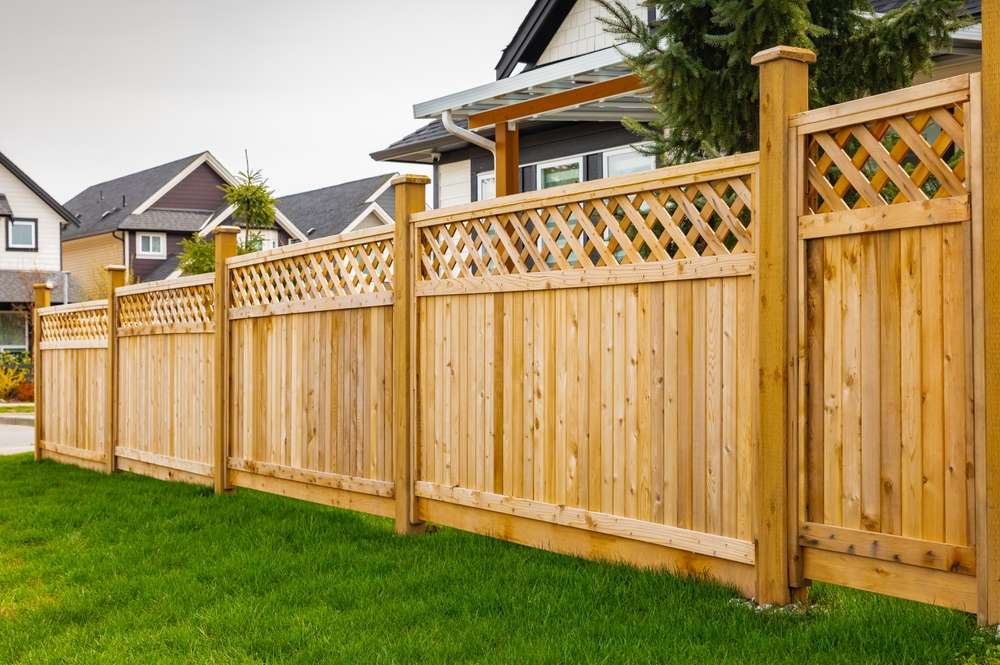Garden Fences: Enhancing Your Outdoor Space with Style and Security
A garden fence is more than just a boundary marker; it's an essential element that can transform your outdoor space, providing privacy, security, and aesthetic appeal. Whether you're looking to keep pets contained, deter intruders, or simply define your property lines, choosing the right garden fence can make a significant difference in both functionality and curb appeal.

What are the main types of garden fences available?
Garden fences come in a variety of materials, each with its own set of advantages. The three most popular types are wooden garden fences, vinyl garden fences, and metal garden fences. Wooden fences offer a classic, natural look and can be easily customized with paint or stain. Vinyl fences are low-maintenance and durable, resisting rot and pests. Metal fences, such as wrought iron or aluminum, provide strength and security while offering an elegant appearance.
How do wooden garden fences compare to other materials?
Wooden garden fences are a popular choice for their versatility and natural beauty. They can be crafted into various styles, from picket fences to privacy panels. Wood is relatively easy to work with, allowing for custom designs and heights. However, wood requires regular maintenance, including staining or painting to protect against weathering and insect damage. Despite this, many homeowners prefer the warmth and traditional appeal of wooden garden fences over other materials.
What are the benefits of vinyl garden fences?
Vinyl garden fences have gained popularity due to their low-maintenance nature and long-lasting durability. Unlike wood, vinyl doesn’t rot, warp, or require painting. It’s resistant to pests and can withstand harsh weather conditions without fading or deteriorating. Vinyl fences come in a variety of colors and styles, mimicking the look of wood or other materials. While the initial cost may be higher than wood, the long-term savings on maintenance make vinyl an attractive option for many homeowners.
Why choose metal garden fences for your property?
Metal garden fences, particularly wrought iron and aluminum, offer unparalleled strength and security. They’re ideal for homeowners looking to create a strong barrier around their property while maintaining visibility. Metal fences are highly durable and can last for decades with minimal maintenance. Wrought iron fences provide a classic, ornate look, while aluminum fences offer a more modern aesthetic. Both options can be customized with various designs and finishes to complement your home’s architecture.
What factors should you consider when selecting a garden fence?
When choosing a garden fence, consider your primary goals. Are you looking for privacy, security, or purely decorative elements? Your local climate plays a role too; areas with high humidity or frequent rain may require more weather-resistant materials. Budget is another crucial factor, as costs can vary significantly between materials and styles. Don’t forget to check local zoning laws and homeowners’ association rules, which may dictate fence height, placement, and materials.
How much do different types of garden fences typically cost?
The cost of garden fencing can vary widely depending on the material, style, and installation requirements. Here’s a comparison of average costs for different fence types:
| Fence Type | Material Cost (per linear foot) | Installation Cost (per linear foot) | Total Estimated Cost (per linear foot) |
|---|---|---|---|
| Wood | $7 - $15 | $5 - $10 | $12 - $25 |
| Vinyl | $20 - $40 | $4 - $8 | $24 - $48 |
| Metal | $15 - $50 | $8 - $20 | $23 - $70 |
Prices, rates, or cost estimates mentioned in this article are based on the latest available information but may change over time. Independent research is advised before making financial decisions.
Keep in mind that these are average costs, and prices can fluctuate based on factors such as location, complexity of installation, and specific design choices. For example, a basic wooden picket fence will be less expensive than a tall, solid privacy fence. Similarly, ornate wrought iron fences will cost more than simple aluminum panels.
When budgeting for your garden fence, don’t forget to factor in additional costs such as gates, post holes, concrete for setting posts, and any necessary permits. It’s always wise to get multiple quotes from reputable fencing contractors to ensure you’re getting the best value for your investment.
In conclusion, choosing the right garden fence involves balancing aesthetics, functionality, and budget. Whether you opt for the classic appeal of wood, the low-maintenance benefits of vinyl, or the strength of metal, a well-chosen garden fence can enhance your property’s value and your enjoyment of your outdoor space for years to come.




